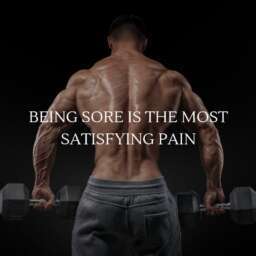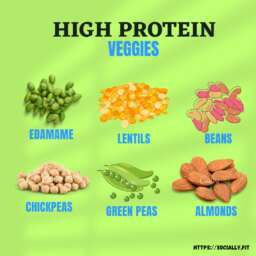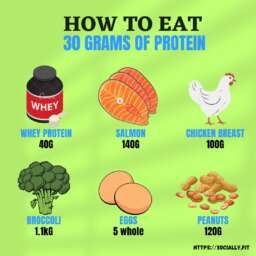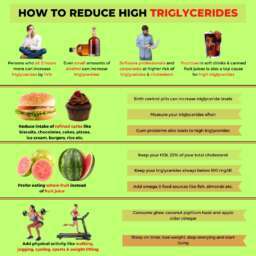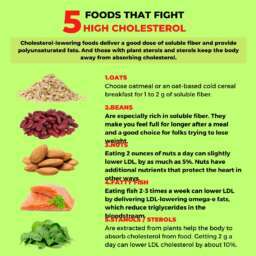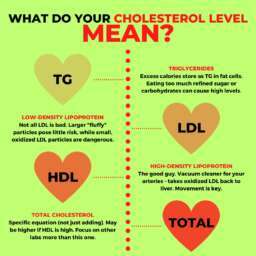Are Protein Bars Good for Weight Loss? Benefits, Drawbacks, and Comparisons. Wondering if protein bars are effective for weight loss? Explore the benefits and drawbacks of protein bars, compare them with other snacks, and find out how they can fit into your weight loss strategy. Learn what to look for in a protein bar to support your goals.
Introduction
In the quest for effective weight management, protein bars have become a popular choice among those seeking convenience and nutrition. But are protein bars good for weight loss? This article explores the potential benefits and drawbacks of incorporating protein bars into a weight loss regimen. By examining their nutritional content, effects on satiety, and their role in a balanced diet, we aim to provide a clear understanding of how protein bars fit into a weight loss strategy.
Nutritional Profile of Protein Bars
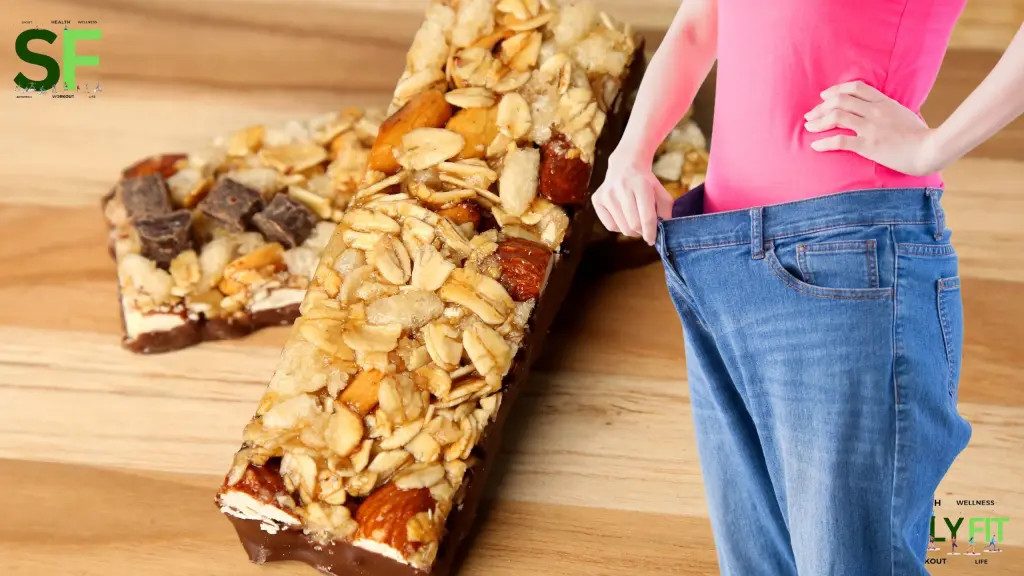
To determine whether protein bars are beneficial for weight loss, it’s essential to analyze their nutritional profile. Protein bars vary widely in their ingredients and nutritional content, but some common components include:
- Protein Content: Most protein bars contain a significant amount of protein, which is crucial for muscle repair, maintenance, and overall metabolism. Protein can help increase feelings of fullness, potentially reducing overall calorie intake.
- Carbohydrates: Carbohydrate content in protein bars can vary. Some bars are high in sugars or refined carbs, while others use whole grains or lower-carb alternatives. Choosing bars with lower sugar and higher fiber content can support weight management goals.
- Fats: Protein bars can also contain varying amounts of fat, including healthy fats from nuts and seeds or less desirable fats from added oils. Healthy fats can contribute to satiety, but excessive amounts of unhealthy fats can add unnecessary calories.
- Fiber: Fiber is an important nutrient for digestion and satiety. Many protein bars include added fiber to help keep you full and support digestive health. The fiber content can also impact the bar’s overall calorie density.
- Vitamins and Minerals: Some protein bars are fortified with vitamins and minerals, which can contribute to overall nutritional balance. However, it’s essential to ensure that the bars are not overly processed or lacking in essential nutrients.
Are Protein Bars Good for Weight Loss
Impact of Protein Bars on Satiety
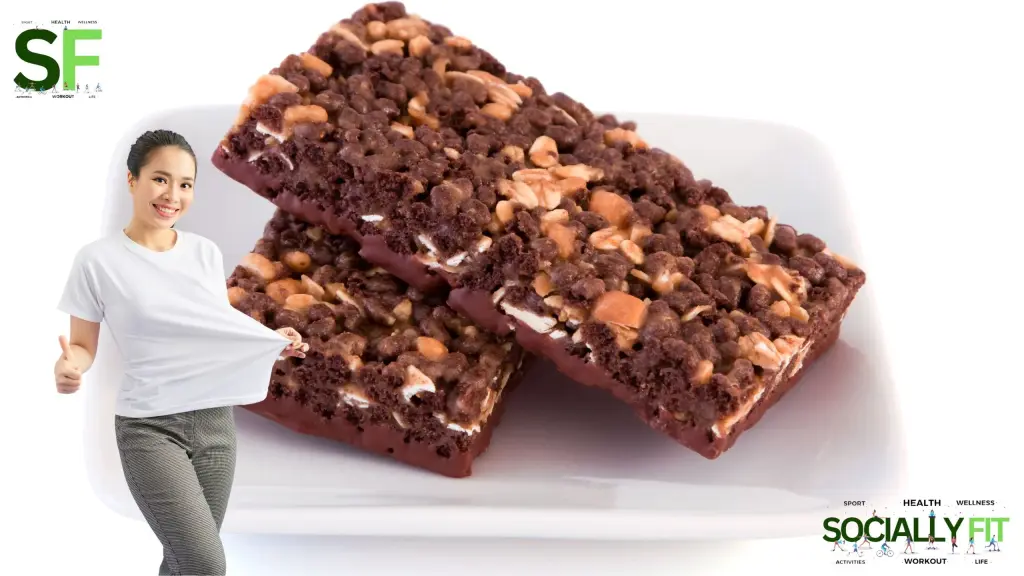
Satiety, or the feeling of fullness, plays a critical role in weight management. Protein bars can influence satiety in several ways:
- Protein’s Role in Satiety: Protein is known for its ability to increase feelings of fullness. A protein bar with a high protein content can help control hunger and reduce the likelihood of overeating, which is beneficial for weight loss.
- Fiber’s Contribution: Fiber also plays a significant role in promoting satiety. Protein bars that are high in fiber can help keep you full longer, making it easier to stick to a calorie-controlled diet.
- Balanced Nutrient Profile: Bars that include a balance of protein, fiber, and healthy fats can be more effective at promoting satiety compared to those high in sugars and refined carbs.
Are Protein Bars Good for Weight Loss
Choosing the Right Protein Bar for Weight Loss

When selecting a protein bar for weight loss, consider the following factors to ensure it aligns with your goals:
- Low Sugar Content: Opt for protein bars with minimal added sugars. Excessive sugar can contribute to unnecessary calorie intake and may counteract weight loss efforts.
- High Protein and Fiber: Choose bars with a high protein content and significant fiber content. This combination can help with satiety and support weight management.
- Quality Ingredients: Look for bars made with whole, minimally processed ingredients. Avoid bars with excessive artificial additives or unhealthy fats.
- Calorie Count: Pay attention to the calorie content of the protein bar. Even healthy bars can contribute to weight gain if consumed in excess. Moderation is key.
Are Protein Bars Good for Weight Loss
How do protein bars compare to whole foods like fruits and nuts in terms of supporting weight loss?
| Aspect | Protein Bars | Whole Foods (Fruits and Nuts) |
|---|---|---|
| Nutritional Density | Often fortified with protein and some vitamins, but may be high in added sugars and artificial ingredients. | Generally rich in natural vitamins, minerals, and antioxidants without added sugars. |
| Satiety | Provides concentrated protein which can aid in satiety, but effectiveness varies depending on fiber content and sugar levels. | High in fiber (fruits) and healthy fats (nuts) which promote fullness and can help control appetite. |
| Caloric Content | Can be calorie-dense, particularly if high in sugars and fats, which might impact weight loss if consumed in excess. | Typically lower in calories per serving compared to protein bars, especially fruits. Nuts are higher in calories but also provide healthy fats. |
| Convenience | Highly convenient and portable, making them an easy option for on-the-go snacking. | Less convenient due to preparation and storage needs, but still portable (e.g., carrying whole fruits or pre-packed nuts). |
| Nutrient Variety | Limited variety of nutrients compared to whole foods; may lack certain vitamins, minerals, and fiber. | Offers a broader range of nutrients including fiber, vitamins, and minerals, enhancing overall health and aiding in weight management. |
This table provides a comparison of how protein bars and whole foods like fruits and nuts can impact weight loss, considering their nutritional profile, satiety, caloric content, convenience, and nutrient variety.
Scientific Studies on Protein Bars and Weight Loss

Research on the effects of protein bars specifically on weight loss is limited, but studies on protein intake and weight management provide useful insights:
- Protein and Weight Loss: Numerous studies have shown that higher protein intake can aid in weight loss by increasing satiety and promoting muscle mass. Protein bars can be a convenient way to boost protein intake.
- Impact on Metabolism: Research suggests that protein can increase metabolic rate, which may help with weight loss. Protein bars that support increased protein intake could potentially contribute to a higher metabolic rate.
Are Protein Bars Good for Weight Loss
What are the differences between low-sugar protein bars and high-sugar protein bars when it comes to weight loss effectiveness?
| Aspect | Low-Sugar Protein Bars | High-Sugar Protein Bars |
|---|---|---|
| Caloric Density | Generally lower in calories due to reduced sugar content, which can help with weight management. | Higher in calories due to added sugars, which can contribute to excess calorie intake and potentially hinder weight loss. |
| Blood Sugar Impact | Have a minimal impact on blood sugar levels, reducing the risk of insulin spikes and cravings. | Can cause rapid spikes in blood sugar levels, potentially leading to increased hunger and cravings. |
| Satiety | Often contain higher fiber and protein, which enhances feelings of fullness and supports appetite control. | Typically lower in fiber and may not provide the same level of satiety, leading to potential overeating. |
| Nutritional Quality | Generally made with better-quality ingredients and fewer additives, contributing to overall health and effective weight management. | Often contain more processed ingredients and artificial additives, which can detract from their nutritional quality and weight loss benefits. |
| Long-Term Effects | Better suited for long-term weight loss due to lower calorie and sugar content, promoting sustainable eating habits. | May contribute to weight gain or difficulty maintaining weight loss due to high calorie and sugar content, affecting long-term weight management. |
This table highlights the key differences between low-sugar and high-sugar protein bars regarding their impact on weight loss, including caloric density, blood sugar impact, satiety, nutritional quality, and long-term effects.
Incorporating Protein Bars into Your Diet
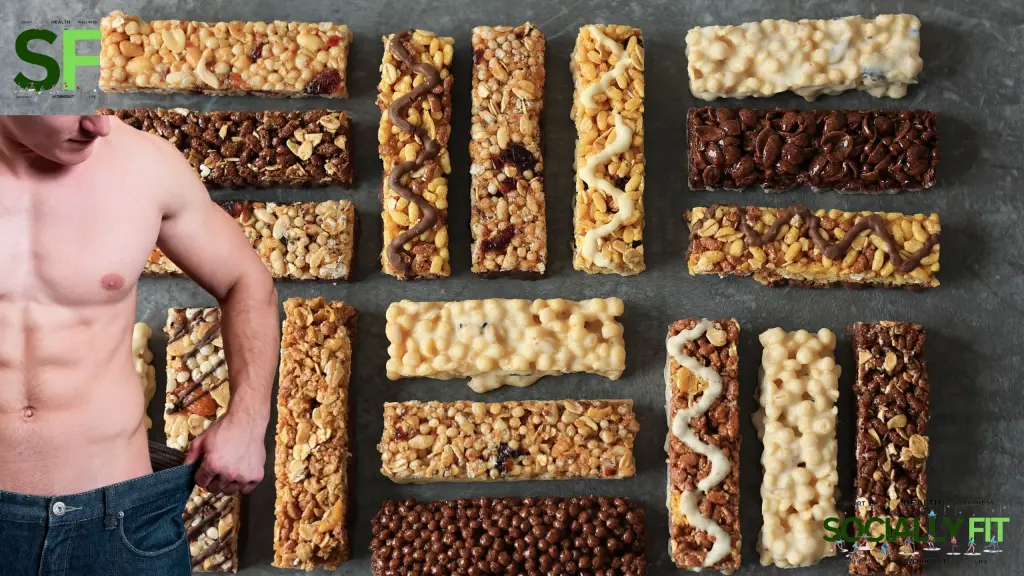
To make the most of protein bars as part of a weight loss strategy, consider the following tips:
- Use as a Snack or Meal Replacement: Protein bars can be useful as a snack between meals or as a meal replacement in a pinch. Ensure that the rest of your diet remains balanced and nutritious.
- Pair with Other Foods: For a more balanced meal or snack, pair a protein bar with other nutrient-dense foods, such as fruits, vegetables, or nuts.
- Monitor Portion Sizes: Even though protein bars can be part of a healthy diet, portion control is essential. Avoid consuming multiple bars in a day, and be mindful of overall calorie intake.
Are Protein Bars Good for Weight Loss
How does the effectiveness of protein bars for weight loss compare to other weight loss snacks such as Greek yogurt or vegetable sticks?
| Aspect | Protein Bars | Greek Yogurt | Vegetable Sticks |
|---|---|---|---|
| Protein Content | Often high in protein, which can aid in satiety and muscle maintenance. | Generally high in protein, especially if opting for Greek yogurt with higher protein content. | Lower in protein compared to protein bars and Greek yogurt. |
| Caloric Density | Can be calorie-dense, particularly if high in sugars and fats. | Typically lower in calories, especially if choosing non-fat or low-fat varieties. | Very low in calories, making them an excellent choice for calorie control. |
| Satiety | Can provide significant satiety if high in protein and fiber, but effectiveness varies. | Greek yogurt is effective at promoting fullness due to its protein and, sometimes, fat content. | Vegetable sticks are lower in protein but high in fiber, contributing to a feeling of fullness. |
| Nutritional Quality | Varies widely; some protein bars are high in artificial additives and sugars. | Generally high in beneficial nutrients like calcium and probiotics, especially if plain or low in sugar. | High in fiber, vitamins, and minerals, and very low in added sugars and unhealthy fats. |
| Convenience | Highly convenient and portable, ideal for on-the-go snacking. | Convenient and portable, particularly if choosing single-serve containers. | Very easy to prepare and carry, though may require some preparation time. |
This table provides a comparison of protein bars with Greek yogurt and vegetable sticks in terms of their protein content, caloric density, satiety, nutritional quality, and convenience for weight loss.
Common Misconceptions About Protein Bars
Several misconceptions surround protein bars and their role in weight loss:
- Protein Bars Are a Magic Solution: Protein bars alone are not a miracle solution for weight loss. They should be part of a balanced diet that includes a variety of whole foods.
- All Protein Bars Are Healthy: Not all protein bars are created equal. Some bars can be high in sugars, unhealthy fats, and calories. It’s important to read labels and choose wisely.
- Protein Bars Can Replace All Meals: While protein bars can be convenient, they should not replace all meals. A varied diet rich in whole foods provides essential nutrients that protein bars alone may not offer.
Are Protein Bars Good for Weight Loss
How do protein bars compare to meal replacement shakes in terms of weight loss support and nutritional balance?
| Aspect | Protein Bars | Meal Replacement Shakes |
|---|---|---|
| Nutritional Balance | Typically focused on protein and sometimes fiber; may lack comprehensive nutrient balance depending on the brand. | Often formulated to provide a balanced mix of proteins, carbs, fats, vitamins, and minerals, aiming for a more complete nutritional profile. |
| Caloric Content | Can be calorie-dense, depending on sugar and fat content; may contribute to weight gain if consumed in excess. | Generally designed to replace a full meal, so calorie content is more controlled and aligned with meal replacement goals. |
| Protein Content | High in protein, which supports muscle maintenance and satiety, but amounts and quality can vary. | Usually high in protein, often with a controlled amount per serving, supporting muscle preservation and satiety. |
| Satiety | Provides satiety through protein and fiber but may not be as filling as a complete meal replacement. | Designed to be more filling, as they often include a mix of proteins, fiber, and sometimes healthy fats to mimic a meal. |
| Convenience | Very convenient for on-the-go snacking, but less suitable as a meal replacement due to limited variety of nutrients. | Convenient for replacing a meal quickly, providing a more comprehensive nutritional profile in a drinkable format. |
This table compares protein bars and meal replacement shakes based on their nutritional balance, caloric content, protein content, satiety, and convenience, highlighting their roles in weight loss support and overall nutritional value.
Conclusion
Protein bars can be a helpful tool in a weight loss strategy when chosen wisely and consumed in moderation. Their high protein and fiber content can aid in satiety, which can support weight management efforts. However, it’s crucial to select bars with low sugar content, high-quality ingredients, and balanced nutrition. Protein bars should complement a well-rounded diet that includes a variety of whole foods to ensure overall health and effective weight management.
Are Protein Bars Good for Weight Loss
FAQs
- Can protein bars help with muscle gain as well as weight loss?
- Yes, protein bars can support muscle gain by providing additional protein needed for muscle repair and growth. They can be part of a balanced diet that supports both muscle gain and weight loss.
- How many protein bars should I eat in a day?
- The number of protein bars you should eat depends on your overall calorie and protein needs. Typically, one or two bars a day can fit into a balanced diet, but it’s important to consider the total caloric and nutritional intake.
- Are protein bars suitable for people with dietary restrictions?
- Many protein bars are available in varieties that cater to dietary restrictions, including gluten-free, dairy-free, and vegan options. Be sure to check the ingredient list and nutritional information to ensure they meet your dietary needs.
- Can protein bars be used as a meal replacement?
- Protein bars can be used as a meal replacement occasionally, but they should not replace all meals. Ensure that your overall diet includes a variety of whole foods to meet your nutritional needs.
- How can I choose the best protein bar for weight loss?
- Look for protein bars with high protein and fiber content, low added sugars, and quality ingredients. Reading nutrition labels and choosing bars with minimal artificial additives can help you make a better choice.
Incorporating protein bars into your diet can be a convenient way to support weight loss and overall health, as long as they are chosen carefully and used appropriately.







